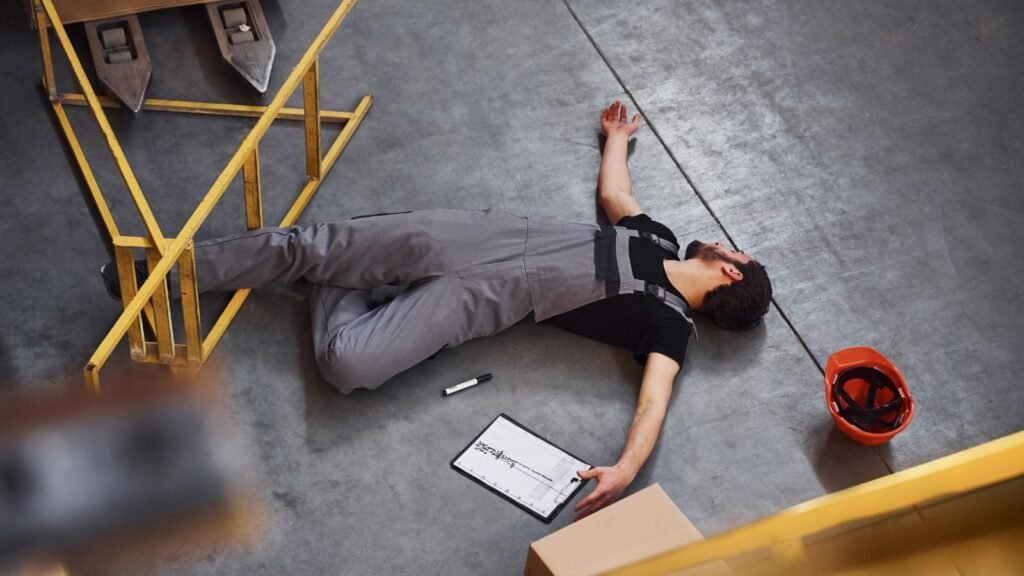
In the UK, if you’re injured at work, you may be able to claim compensation — but only if negligence can be proven. Workplace injury claims depend heavily on this factor. Understanding how negligence is determined helps you decide whether you have a valid claim and how to proceed.
What Is Considered Negligence?
Negligence happens when someone fails to take reasonable care to prevent harm. In a workplace setting, this often refers to employers not meeting their legal duties. It could involve:
- Poor health and safety standards
- Lack of training or supervision
- Faulty equipment
- Ignoring safety risks
- Forcing staff to work in unsafe conditions
If any of these lead to injury, it could be grounds for a workplace injury claim.
How Do You Prove Negligence?
To prove negligence in a claim, you must show four things:
- Duty of care: Your employer had a legal obligation to keep you safe.
- Breach of duty: They failed to meet that obligation.
- Causation: The breach directly caused your injury.
- Loss or damage: You suffered physical or financial harm.
All four must be present. Missing even one may weaken your workplace injury claim.
Who Can Be Held Liable?
Your employer is usually responsible for workplace safety. However, liability can also fall on:
- Equipment manufacturers (if the fault was with the tools or machinery)
- Contractors or site managers
- Other employees (if their actions caused the injury)
The key is to identify who acted negligently and how it led to your injury.
How Claim Central Supports UK Workers
Claim Central specialises in helping people across the UK with personal injury and workplace injury claims. If you’ve suffered due to employer negligence, they offer:
- Free claim assessment: Quick checks to see if you may be eligible.
- Expert legal guidance: Qualified solicitors to manage your case.
- No win, no fee: You only pay if you win.
- Quick responses: They aim to reply within 24 hours.
Claim Central understands UK laws and makes the claims process simple and stress-free for workers.
When Medical Negligence Is Also Involved
If your injury was made worse by poor medical care, you may also have a medical negligence claim. For example, if a doctor misdiagnoses your injury or prescribes incorrect treatment, it can delay recovery or cause further harm.
Claim Central’s medical negligence team deals with these cases. They help prove that the care you received fell below NHS or private healthcare standards — and they fight to get you the compensation you deserve.
What to Do After a Workplace Injury
If you’re injured at work, take these steps right away:
- Report the incident to your manager or HR team.
- Seek medical treatment, even if the injury seems minor.
- Document the scene — photos, notes, and names of witnesses help.
- Keep a record of all expenses, time off, and any suffering.
- Contact Claim Central to start your workplace injury claim.
Acting quickly helps strengthen your case and protects your legal rights.
Why Proving Negligence Matters
Workplace injury claims are not just about compensation — they hold employers accountable and help improve workplace safety. If your employer was negligent, you should not have to suffer the consequences alone.
Proving negligence gives your claim a strong legal base. Without it, most claims fail. That’s why it’s vital to seek help from experienced legal teams like Claim Central, who understand UK law and how to build a winning case.
Final Thoughts
Negligence plays a key role in workplace injury claims. If you’ve been injured because someone didn’t follow proper safety standards, you may have a right to claim. Claim Central can help you find out — quickly and without pressure.Their legal support is professional, straightforward, and designed for everyday UK workers. Don’t ignore an injury or assume it’s your fault. If negligence was involved, get help, get answers, and get the support you need to move forward.
Also Read : Medical Negligence in Cornwall: How to Seek Compensation







